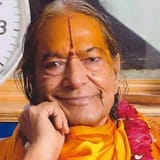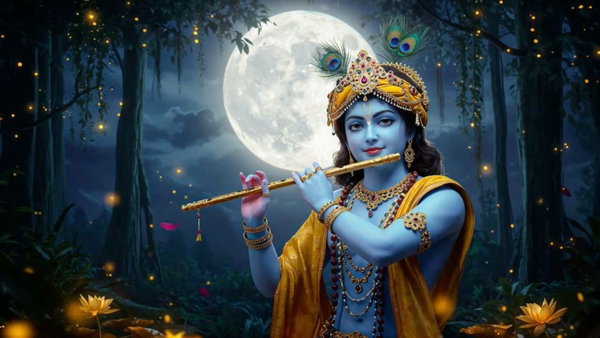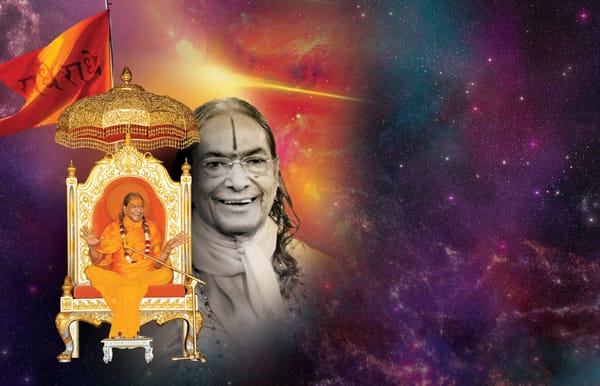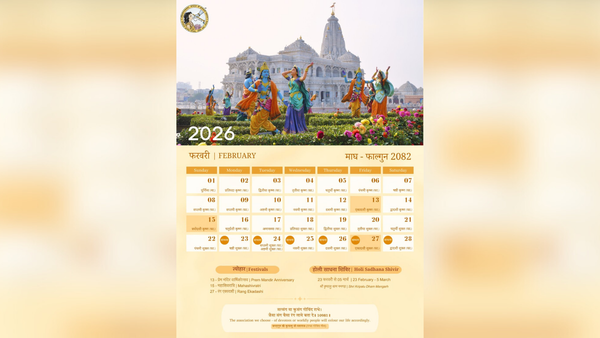Daily Devotion - Sep 10, 2025 (English)- Narad Bhakti Darshan - Part 3
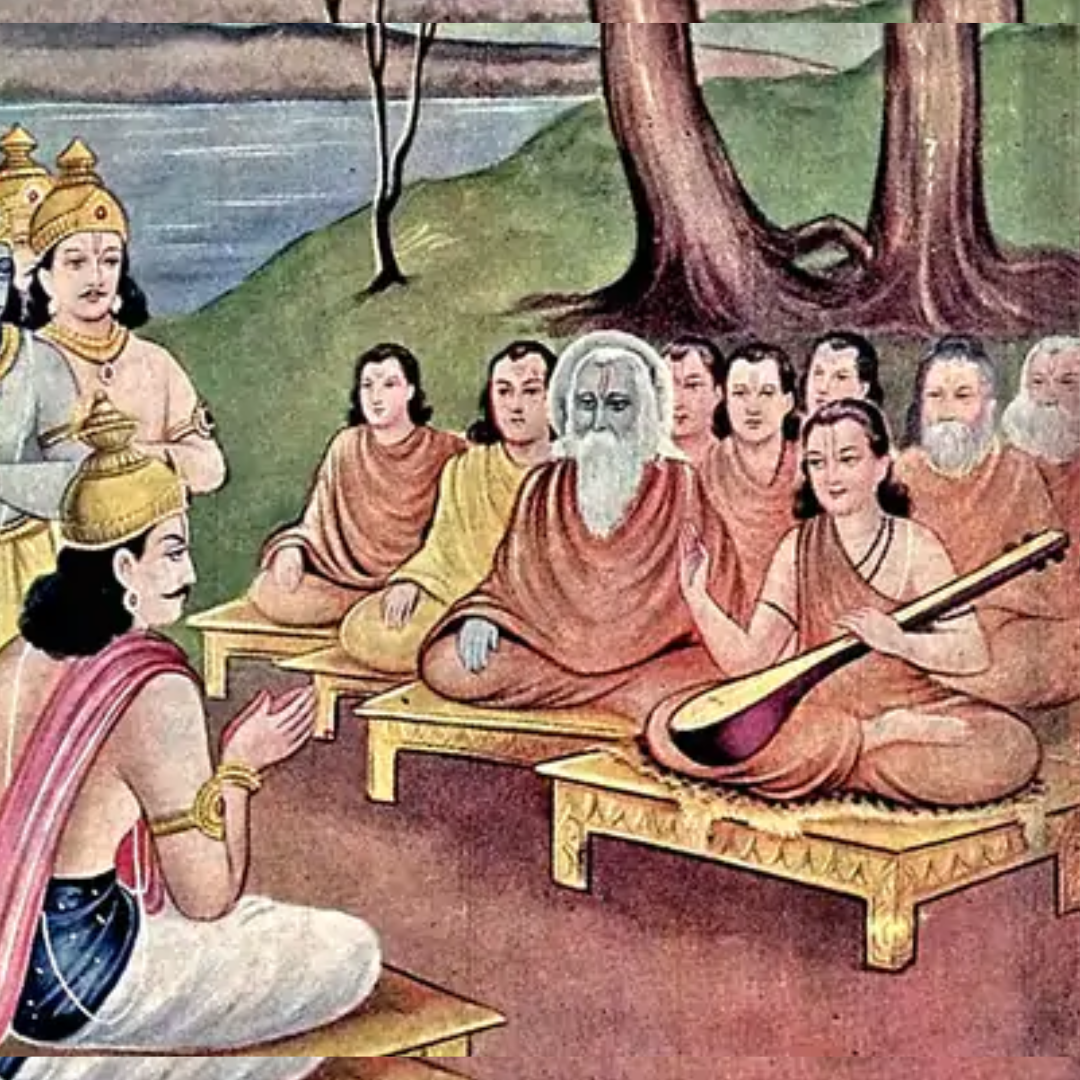
Nārad Bhakti Darshan - Next Part -
(i) Yat prāpya na kiṁcid vāñchati (continued)
However, Shri Maharaj Ji's opinion is that although desires related to God are not condemnable, they are not praiseworthy either.
Why so?
Because desire, whether worldly or spiritual, is dangerous for the sādhak. How so?
If you form any desire, whether worldly or spiritual (such as wanting His darshan), and you continue crying for it - for a day or two, a month or a year, thousands or even millions of years - it will be due to the pride that God will come simply because of your crying. However, God comes only according to His own will. He cannot be compelled by the whip of any of your spiritual practices.
There are two types of asking:
- One is like buying a railway ticket: you pay money at the counter and receive a ticket. There is no favour involved in this exchange because you paid money and they gave you a ticket.
- The second is like a hungry person saying, "Sir, I'm hungry, please give me some money!" Here, you have done nothing; you have only asked.
In the same way, when you ask God for something spiritual - divine love, divine bliss -
For this, you offer Him your tears.
But are tears something that are offered to someone? You may be asking - but even this asking is adulterated. You are not asking with a pure heart. There is still some impurity. What devotional practice have you really done?
If you say that you have done kīrtan and shed tears, then what do kīrtan and tears amount to?
They amount to asking.
What have you given God? Whatever you possess is of no use to Him. If you say that you have given your body, mind, intellect, and worldly possessions - these all belong to Him anyway. Even if you think you have given them, you will be asked: whose were these to begin with?
This entire universe is His. And within this universe, even if you give away your two or three houses, what great achievement is that? These are His possessions anyway. Why should you feel pride about this?
So any request made with pride will not be accepted.
But if you petition correctly, you will receive what you ask for.
However, there is one major problem: after receiving something, the desire immediately advances further, whether worldly or spiritual. For example, when you get a bicycle, you desire a motorbike; when you get a motorbike, you desire a car; when you get a car, you desire a bigger car. Even if you were to receive the empire of infinite universes, there would still be further planning.
The same is true in the divine realm. There, too, are many levels like brahmānand, vaikuṇṭhānand, dvārikānand, mathurānand, brajānand, vṛndāvanānand, kunjānand, nikunjānand. If you harbor desires, they will only advance as soon as they are fulfilled. Moreover, there is no guarantee that these desires will be fulfilled during the stage of preparatory devotion.
Therefore, if your desire is not fulfilled during the stage of preparatory devotion, despair will follow. And when despair comes, you will turn away from God. People then say, "Oh, I cried and sang for so many days - it is all nonsense. There is no such thing as God. People have unnecessarily spread this commotion. God and such things are the creation of those half-mad people who lived in forests." In despair, a person can fall so low that he even harbors wrong thoughts about God and the Guru.
Therefore, devotion should not be practiced with desire. It is very dangerous for the sādhak. If one becomes God-realized, that is different, for such a person will never experience downfall.
So Nārad Jī says - yat prāpya na kiṁcid vāñchati.
After attaining Whom, one desires nothing. But would you not desire bliss?
Bliss - this is the most difficult test. Even great jīvanmukta paramhaṁsas fail here - they too become sakām.
They ask God for brahmānand. They ask for moksh.
But what is asking for moksh? It is a desire.
What is asking for bliss? It is a desire too.
So the desire for moksh is also sakāmatā (selfish devotion).
But there is a subtle difference between nishkāmatā (selfless devotion) and sakāmatā (selfish devotion).
What is that?
If you say that you want to serve God - isn't this a desire, too?
But here, you want to serve your Beloved, your object of worship. And it is not like a mother who serves her child and feels happy. You want to serve Shyamasundar so that Shyamasundar may receive happiness.
Now even your desire for bliss is finished - you become nishkām, selfless. You ask only for His service so that Shyamasundar may be pleased. For that service, you ask for His divine, selfless love.
For this, Nārad Ji has created a sūtra -
Tat sukha sukhitvam (Sutra 24)
Then, where do you receive bliss? Did you do such extensive labor only to waste it?
No. When you give happiness to Shyamasundar through your seva, Shyamasundar makes it even sweeter and returns it to you. Then you receive even greater bliss, and you offer it to Shyamasundar again. Then He returns it to you again. Then you offer it to Him again. This sequence continues for eternity. Therefore, bliss keeps increasing. That is why Nārad Ji later created a bhakti-sutra -
Pratikṣaṇavardhamānam (Sūtra 54)
(ii) Na śocati -
A person who has attained Bhakti does not worry and does not grieve.
Grief and sorrow arise when the father dies, the son dies, wealth is stolen, or some loss occurs. These events happened in the past. Yet, one continues to feel the loss in the present, thinking, "it has gone, it has been taken away."
Whatever may be taken away, you should recognize God's grace in everything.
If the house catches fire, even then think, "He is very merciful - why should I maintain this trouble?" If the wife dies, even then think, "He is very merciful- this too is a disease, let her go."
Whatever worldly loss occurs, regard it all as God's grace.
In worldly gain, there is anger, not grace. 99.9% of people in the world consider worldly gain as grace - when a son is born, they think, "This is God's grace." But in truth, this is the time to weep. Now you must raise him; if he becomes sick, you will cry; when he grows up and does not listen to you, you will cry again. Worldly wealth is a poison - sweet poison. On the wedding day, there is great pomp, but no one speaks of what happens afterwards.
If you keep contemplating the past, your mind will drift away from the present to the past. In other words, your mind will separate from God - and thus, devotion is lost. Devotion is such a vessel that can hold only one thing at a time:
yugapat jñānānutpattir manaso liṅgam
Either keep the world in your mind or God.
Therefore, you should not grieve. Whatever is happening is happening according to prārabdh (destiny). Why did you think, "This is my son, my brother, my sister"? If you had not thought so, then today, when he dies, you would simply think, "Fine, his time came and he went. When my time comes, I too will go." These are natural and self-evident facts.
(iii) Na dveṣṭi - He does not hate anyone.
Hatred arises from anger. If you become angry, then the mind goes toward the enemy. The wood-like mind catches fire and keeps burning within. Devotion is gone.
Anger comes from the unfulfillment of desires. But you should not harbor hatred anywhere. If you must live in the world, act angry but do not actually become angry. Just as actors perform to amuse others, similarly act angry, but do not let anger enter the heart.
A Baba Ji once woke up due to mosquito bites. He said, "Even the mosquitoes here are benevolent - they are saying, 'Do not sleep, do bhajan.'"
That is, where one should ordinarily become angry, even there, anger should not arise. Such is a true sādhak.
There may be a reason for anger, but no anger arises. There may be a reason for lust, but no lust arises. There may be a reason for greed, but no greed arises. This is a true sādhak.
To avoid hatred, Shri Maharaj Ji gives an excellent technique:
- Do not forget that your Shyamasundar is seated within every soul.
- If you develop hatred, you will contemplate the enemy, and your remembrance of Shyamasundar will stop.
Therefore, a devotee does not hate.
(iv) Na ramate - He takes no pleasure anywhere.
yo na hṛṣyati na dveṣṭi na śocati na kāṅkṣati
śubhāśubhaparityāgī bhaktimānyaḥ sa me priyaḥ (Gītā)
Yo na hṛṣyati - When you receive worldly things: if you need to wear a dhoti, then wear it. But do not create a disease of colours and fashion.
People act like madmen - they want the latest fashion. In India, fashion comes from abroad after it becomes old there. Then it changes, and then returns. And they call this as being advanced.
What will you gain by doing all this?
In the world, no one can truly praise anyone. If you remain simple, they will say, "Look at his tattered condition - he is such a miser." And if you follow fashion, they will say, "Unmarried and so much fashion - wayward girl!" So why do you flatter them?
Use worldly things, but do not feel joy in them. Offer them to God and accept them as prasād.
The greatest description of a saint's characteristic can be found in the Bhāgavatam -
gṛhītvāpīndriyair arthān yo na dveṣṭi na hṛṣyati
A saint accepts sensory objects but has no attachment to them. When a saint eats rasgulla, he thinks, "Shyamasundar has eaten this; I am eating His prasād." Therefore, he is ecstatic.
But when a worldly being eats rasgulla, he says, "What sweetness, what fragrance." He is absorbed in his own world.
In other words, the action is the same, but the feeling is different.
So what Gita says - yo na hṛṣyati - is what Nārad Ji is saying - na ramate.
(v) Notsāhī bhavati -
What the Gītā says - śubhāśubhaparityāgī, Nārad Ji expresses by saying - 'notsāhī bhavati'.
A devotee does not make plans to obtain worldly things. If he receives them, fine. If he does not, that too is fine.
In the world, even the greatest planners have been defeated. Chitraketu married ten million wives but had no children. Through the blessings of sages, one of his wives bore a child. But the other wives, out of jealousy, poisoned and killed him. Now the king wept bitterly. The sages suddenly appeared and said, "Why do you invite trouble? The world has always been like this and will remain so. Neither God nor saints can change it - then what can worldly people do when they are themselves bound by their karma?"
Therefore, have no enthusiasm for worldly things.
Enthusiasm means making plans with the thought that happiness will come from them. But do not make a one-sided philosophy. Life may happen, but so may death. You may attain fame, but you may also fall into infamy. You may gain profit, but you may also suffer loss. You should remain indifferent to the world. Perform your duty, but do not make the goal that "things will certainly happen this way." Otherwise, when things turn unfavorable, you will weep. Think instead, "This may also happen." Do not think "Only this will happen." It is as simple as that.
One becomes sorrowful in the absence of a wife, son, father, or possessions because one thinks they will always remain theirs. You think the son will not die, that he will always serve. But perhaps he does not die - yet he stops serving. The wife whispers in his ear, "Give your earnings to me, not to your mother." And the quarrel begins.
Thus concludes the explanation of the fifth sutra -
yat prāpya na kiṁcid vāñchati, na śocati, na dveṣṭi, na ramate, notsāhī bhavati.
TO BE CONTINUED...
Recommended books by Jagadguru Shri Kripalu Ji Maharaj related to this topic:

